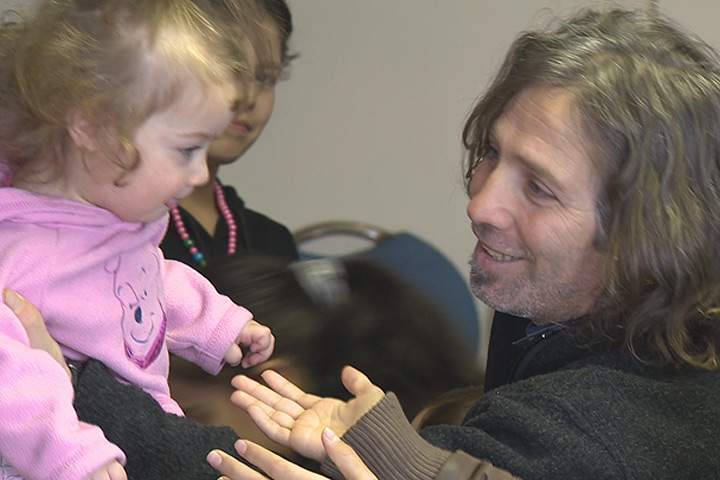Nearly half of the 25,000 anticipated Syrian refugees have arrived in Canada, said government officials Thursday morning.

As of midnight Wednesday night/Thursday morning, 12,425 Syrian refugees had arrived since the accelerated program began Nov. 24. At a current rate of roughly one plane per day, that means Canada will be halfway to its goal of 25,000 refugees by the end of the day on Thursday. The goal is to have 25,000 by the end of February.
Of the 12,425 refugees who have arrived so far, 6,805 are government-assisted, 4,858 are privately-sponsored, and 762 have come through the blended visa-referred program.
Officials provided the updated information at a media briefing Thursday morning.
The goal of 25,000 Syrian refugees has been a moving target. The original promise, made by now-Prime Minister Justin Trudeau during the election, was to admit 25,000 government-sponsored Syrian refugees by the end of 2015.
On Nov. 24, 2015, the government announced its plan, which moved the deadline to the end of Feb. 2016. Many refugee organizations had expressed their reservations about the original tight 2015 deadline. At that time, the government also said that not all 25,000 refugees promised by the end of February would be government-sponsored, but that it would work to admit 25,000 government-sponsored refugees by the end of 2016.
Pauses, slowdowns and fluid situations
The arrivals haven’t all been smooth, though. Over the last week, resettlement organizations in Ottawa, Vancouver, and Toronto have requested temporary pauses in new arrivals because they no longer have enough temporary housing spaces for them to stay in.

Get daily National news
READ MORE: Another Canadian city requests a pause in refugee flow
“I can tell you why we’re asking,” said Carl Nicholson, executive director of Ottawa’s Catholic Immigration Centre, which is heading up the resettlement effort in that city.
“We needed to match the flow that we were getting with the capacity that we have. So we say, don’t send us any more until we have more space.”
“We established almost 500 temporary accommodations. We received almost that many people. But then we were having to shift because of the composition: large families, children, not a lot of English or French. It was harder to place them in permanent accommodation so we had a backup in temporary accommodation.”
Halifax has also requested a slowdown, and Calgary has asked to not be sent large families.
READ MORE: Large families of Syrian refugees struggle to find affordable housing in Calgary
According to government officials, groups in Prince Albert and Saint John have indicated that they are near capacity and may also request a slowdown soon.
While they wait for permanent housing, such as an apartment, many refugees stay in temporary housing, like a hotel. It’s not unusual for refugees to spend three or four weeks in such accommodations, said officials, and such temporary housing isn’t confined to this particular refugee crisis.
Nicholson confirmed that this has been normal in the past for refugees arriving in Ottawa.
What’s new is the volume. And as such, plans often have to be adjusted on the fly, as different cities reach capacity or free up spaces, said officials.
Officials said that they don’t put refugees on airplanes unless they know where they are going. But, situations can change even when a plane is in the sky. In some cases, a service provider might tell the government that they have no room, so refugees are expected to go to a different destination, but while they’re en route, spaces are freed up so they might be redirected.
The situation is dynamic, and so decisions are constantly being made to try to ensure the smoothest transition for the refugees.
Big families, big apartments
Although Ottawa’s temporary housing facilities are full now, Nicholson anticipates that 40 people will be moving into permanent housing next week, freeing up those spaces for new arrivals.
It’s taking longer to find apartments because of the large size of many Syrian families, he said, which came as a surprise to him. The average family size is 5.5 among arrivals to Ottawa, meaning that there are many families with seven or eight people – and there aren’t very many large rental apartments in the city.
In some cases, he said, private landlords have agreed to waive the first month or two of rent, cover the cost of utilities or provide gift certificates in an effort to help refugees resettle.



Comments